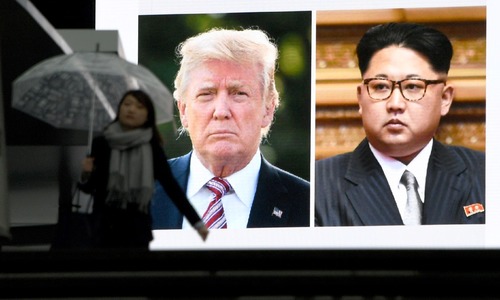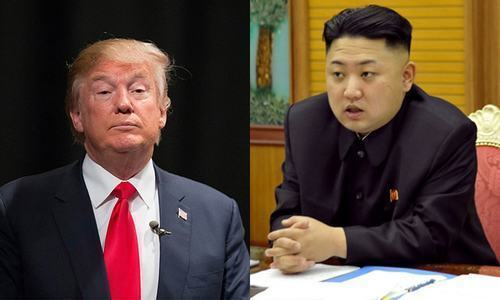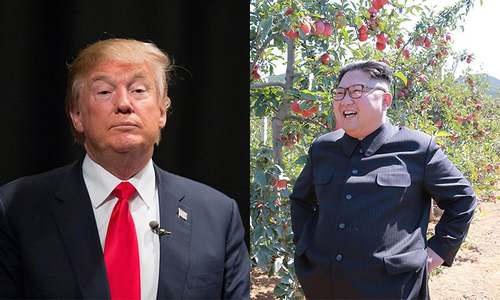SEOUL: US President Donald Trump has accepted an invitation to sit down with North Korean leader Kim Jong-un by May for talks to denuclearise the Korean peninsula, but their different understandings of “denuclearisation” stand as a major stumbling block to the possibly history-making talks.
Despite growing hopes that the breakthrough between North Korea and the US could tackle the nuclear stand-off, scepticism also lingers over whether the summit between Trump and Kim can be held and if so whether it could be successful.
Trump accepted Kim’s invitation after the reclusive regime met the preconditions suggested by the US. Kim agreed to commit to denuclearisation, suspend nuclear and missile tests, and refrain from criticising upcoming joint military exercises between South Korea and the US.
The North has said nothing yet about its view of the potential summit and what it meant when it said it is willing to denuclearise.
Though Washington and Pyongyang are on track to hold their unprecedented summit, one of the major hurdles the two countries is facing is differences over how they interpret denuclearisation and what steps should be taken to achieve the goal, experts say.
North Korea’s reported willingness to denuclearise is “encouraging”, but there is a “need to better understand what Kim means by denuclearisation”, according to Joseph DeTrani, former US special envoy for nuclear talks with North Korea.
“We know what it means — complete, verifiable and irreversible dismantlement of its nuclear programmes — but we need to hear it from North Korea. Greater clarity from North Korea is necessary,” he said.
The US has been clear about its version of denuclearisation. It wants North Korea to dismantle its nuclear weapons programmes in a complete, verifiable and irreversible way — not just freezing the development of its nuclear and missile programmes.
The US intends to make sure North Korea implements verified dismantlement, which requires the North to cooperate with an external body so that it can verify that the dismantlement has occurred.
But to North Korea, it could mean less than that. It might define denuclearisation as a long-term goal that would only be achieved in return for concessions from the US — such as withdrawing troops from South Korea and ending the US-South Korean military alliance.
“North Korea is saying that it will enter the denuclearisation process when it is sure that its regime’s security is guaranteed,” said Cho Sung-ryul, a senior researcher at the Institute for National Security Strategy.
“North Korea is likely to refuse to talk to South Korea and the US if they focus only on denuclearising the isolated country without offering any measures to guarantee the North Korean regime’s survival.”
And it is questionable whether the North will agree to the level of denuclearisation.
“The biggest issue facing Trump and Kim in the run-up to their summit would be exploring what the other side means by denuclearisation. Even if North Korea is serious about giving up its nuclear weapons programmes, what North Korea would demand in return and whether the US is ready to meet the demand would be another challenge,” said James Kim, research fellow at the Asan Institute for Policy Studies.
“It remains to be seen whether talks between Trump and Kim could actually take place,” he said.
Asked if there is a chance the meeting won’t take place, White House press secretary Sarah Sanders told a regular press briefing on Monday, “We fully expect that it will.”
“The offer was made, and we’ve accepted. North Korea made several promises, and we hope that they would stick to those promises. And, if so, the meeting will go on as planned,” she said. — The Korea Herald
Published in Dawn, March 14th, 2018













































